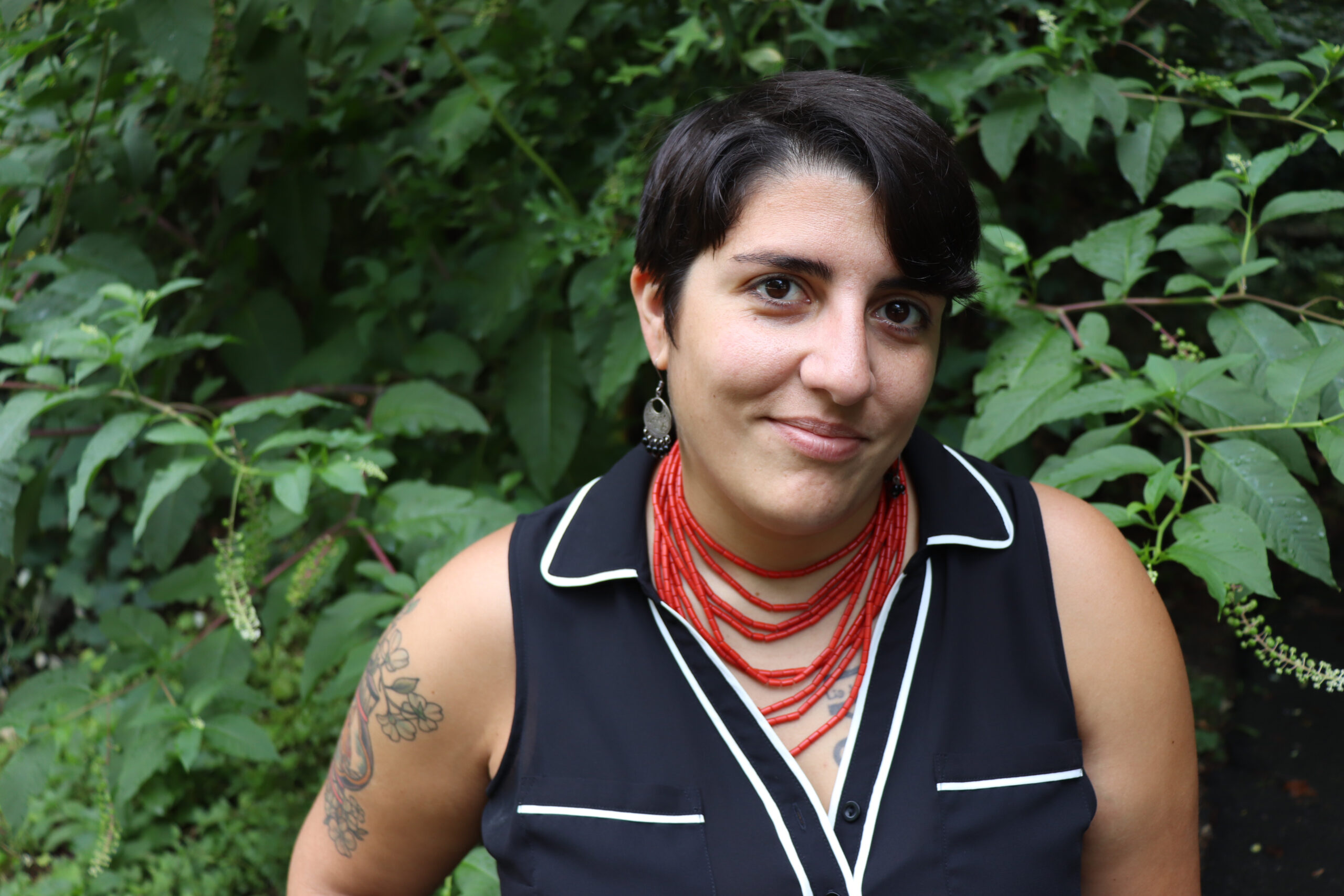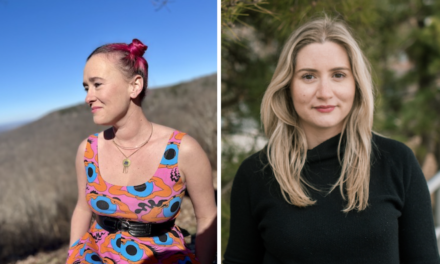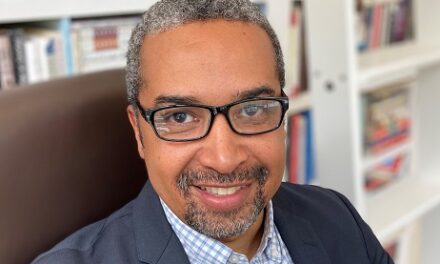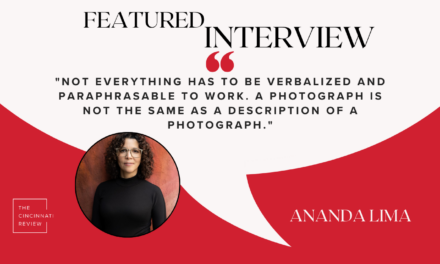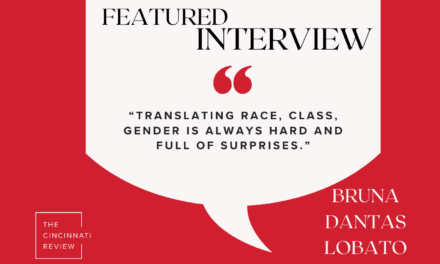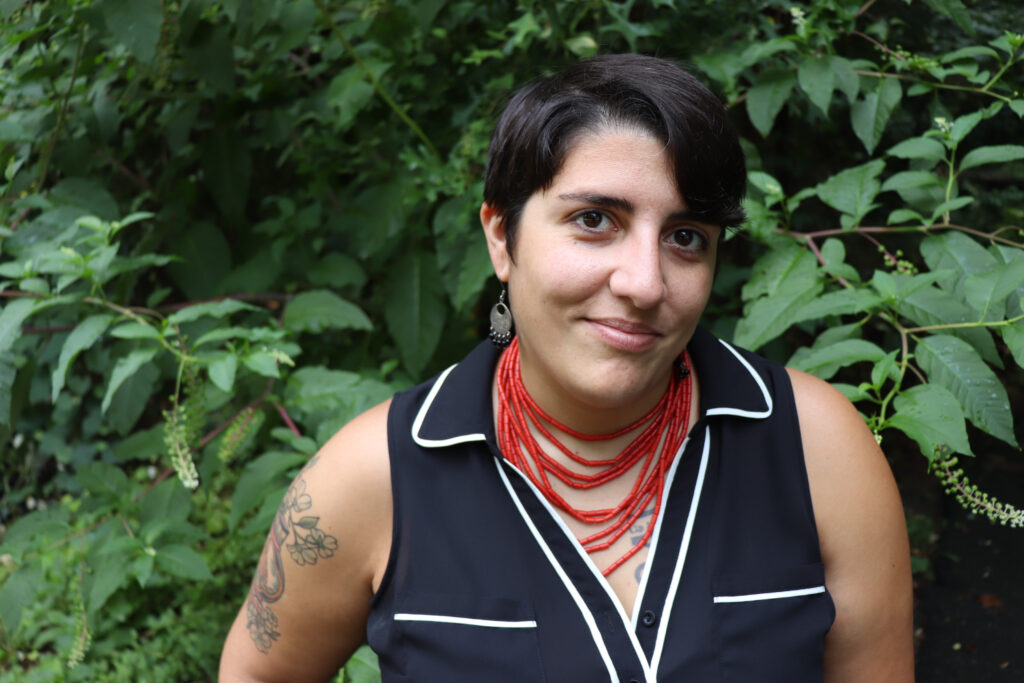
Associate Editor Madeleine Wattenberg: Although poets often consider ourselves in conversation with others through community, inspiration, tradition, few poets embrace the praxis of conversation in their work as directly as Danielle Badra. Badra is the author of the chapbook Dialogue with the Dead (Finishing Line Press, 2015) and the forthcoming full-length Like We Still Speak (University of Arkansas Press, 2021), which was selected by Hayan Charara and Fady Joudah as the winner of the 2021 Etel Adnan Poetry Prize. In both her collections, Badra employs intertextual forms, especially contrapuntals, in order to incorporate other voices into her work. Her poem “It Is,” published in our miCRo series, is one such piece.
Wanting to know more about this community-centric use of form, I spoke with Dani on the telephone to discuss the polyphonic approaches across her two books and the possibilities for elegy they permit.
Polyphonic forms, such as contrapuntals, are really important in both your books. Can you talk a little bit about how your relationship to these forms emerged and developed over the course of your writing?
It definitely started from a place of urgency, this need to talk to my sister. That’s where it all began. When she died in 2012, I found a folder filled with poems of hers that for some reason she did not share with me. I wanted to memorialize her words by getting them published but I knew they couldn’t be published in the form I found them in. At the same time, I wanted to talk to her, so the contrapuntal form gave me the opportunity to do both of those things. I was completely unfamiliar with the form and thought that I had invented it. And I think because I started writing in that way before knowing the form existed, it made it so I could make the form my own.
I primarily try to use it as a mode of dialogue, as conversation with whoever’s words I’m using. That’s also part of my growth with the form, no longer exclusively using my sister’s words; for the first three years I was writing [my chapbook], I wrote almost three hundred contrapuntals just with my sister. That’s all I wrote, almost every day, because I was obsessed and I was grief-ridden. It was hard for me to break out of the form when I started the MFA. I wasn’t sure if I was going to be able to write in any other form, because I’d become so comfortable writing in the contrapuntal form and with my sister, I didn’t know if I could do it any other way.
That does lead into my next question, which is about these forms of collaboration that engage with multiple voices and thus resist an image of the individual poet who has ownership of everything on the page. I was also thinking about how the physical reading experience is different too—you’re not just reading in a linear, left-to-right, very Western way either, and so that’s disruptive; I was curious about how you think of the form as operating within a poetic tradition, if you’re purposefully countering those assumptions?
While I like the idea of purposefully challenging the poetic tradition, I do enjoy that especially in my teaching of literature, I wouldn’t say I went into it with that purpose in mind. If that’s the outcome, I am fine with that, but I don’t think it was purposeful necessarily.
When I started my full-length project, I knew that I wanted to continue to do work similar to the contrapuntal work I had done previously, but I wanted it to be less focused on just me and my sister and open up to other voices, especially voices that have been less heard, not only marginalized voices but also the voices that are close to me. I basically wanted to create a literary community in my book. I don’t even know how to talk about it; there’s something special in sharing the page with the people that I love . . .
I really value all the people in my life and those who have joined me in this conversation, who have volunteered their words. For example, there’s one poem in my book where I pulled from a Facebook post my mom wrote on my sister’s wall. She wrote, “Always on my mind. Forever in my heart. Cardinal out the window. Wondering what would be in your life now. Love you.” That phrasing just sounded so poetic to me and just really struck my heartstrings. I needed to respond to it.
I did a reading a year ago, pre-COVID, and [my partner] Holly joined me to read a contrapuntal; she read the side she had written. My ideal reading would be to have all the people I collaborated with come up and read their portions. I don’t see the point in limiting the voices in the room. Everyone has something interesting to say.
My third question is moving into the actual craft, because you have been writing in this form for so long. What quality is it about somebody else’s art or language that leads you to engage with their work in your poetry? What are your tips for writing in these forms?
You know, you react to a certain phrase, you highlight a certain area because you’re drawn to it, so that’s what I’ll do. I’ll try to find something, or it will find me, and then I will take that text, even if it’s a fragment rather than a full sentence, and put it on the page. I’ll move those words around, break up the syntax so that it’s not just a straight sentence, and I’ll lineate them. Basically, I’ll try to find a way into [the poem] by writing around the words. Then I try to create some sort of pattern to structure the poem. If that pattern ends up holding the poem back, later on I can break it. If it’s a painting or visual art, sometimes I’ll also look at the description and pull words from there.
I’m always really jealous of artists that have beautiful artist statements because it doesn’t seem fair they can create the piece and talk so beautifully about it.
Thank you so much for taking the time to talk with me! Is there anything you’d like to add?
I guess since my dad just passed in the middle of finishing this book, I am really thankful to the form of contrapuntal and to the ability to use the words of my loved ones in my writing. It really is a way of communing with my dead. [When I wrote poems in dialogue with my sister,] I honestly felt like I was talking to her in poems. While I was writing them, I felt like she was there.
Danielle Badra received her BA in creative writing from Kalamazoo College and her MFA in poetry from George Mason University. She won the 2021 Etel Adnan Poetry Prize for her collection Like We Still Speak, which will be published by the University of Arkansas Press in the fall of 2021.

